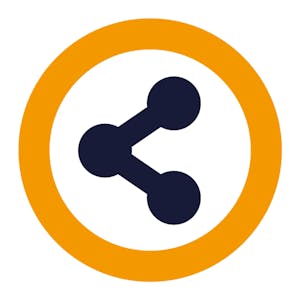Science Communication Communicating Trustworthy Information in the Digital World
In a world of information overload, how does one find reliable information? Science is supposed to be the answer to our society’s complicated challenges. However, as the Covid-19 pandemic highlighted, not understanding what is fake news, misinformation or what is fact may lead to widespread public mistrust, or turn science into fuel for conspiracy theories or propaganda. Scientific findings are prone to …
Science Communication Communicating Trustworthy Information in the Digital World
In a world of information overload, how does one find reliable information? Science is supposed to be the answer to our society’s complicated challenges. However, as the Covid-19 pandemic highlighted, not understanding what is fake news, misinformation or what is fact may lead to widespread public mistrust, or turn science into fuel for conspiracy theories or propaganda. Scientific findings are prone to change, making it difficult to effectively communicate them to the public. This fosters broad public skepticism towards major institutions, from the government to media to science. So, how can we communicate science effectively? And how can we rebuild trust in science? As a result, it is critical that we reconsider our science communication practices to recover public trust.This course offers a current overview of science communication. We cover a wide range of topics like fake news, mis- or disinformation, but also how to combat these practices. We explore how major stakeholders (scientists, policymakers, science communicators and citizens) can work together to improve science communication. And we tackle how people and organizations can earn and maintain public trust via effective science communication. We recommend this course to scientists, journalists, policymakers or any learners interested in science communication.
More information can be found at www.trescaproject.eu (This project has received funding from the European Union’s Horizon 2020 Research and Innovation Programme under Grant Agreement No 872855.)
Learn about the best practices for effective science communication
Understand how different stakeholders (policymakers, scientists, journalists) approach science communication
Learn about the advantages and drawbacks of communicating science in digital media and their implications for public trust.
Develop hands-on skills using tools and resources to evaluate information in digital media.
Syllabus
Syllabus - What you will learn from this course
Week 1
Module 0
Welcome to the course! In this module, you will learn about the importance and relevance of effective science communication in the digital world. We will outline various topics and important concepts that will be discussed in the next modules.
Week 2
Module 1: The Digital Communication Ecosystem
In this module, you will explore the effects of digital media on science communication and the implications on social trust.
Week 3
Module 2: The (Social) Scientist
In the age of misinformation and fake news, there seems to be a public outcry for ‘trust in science’. This module shows you how social scientists produce knowledge and what challenges they face in communicating science.
Week 4
Module 3: The Journalist
In this module, you will learn how journalists combat threats like fake news or misinformation. We also discuss how they ensure and navigate responsible and reliable reporting in today’s world.
Week 5
Module 4: The Policy Maker
Policymakers make decisions in light of competing opinions on scientific issues. But what should they do to maintain public trust? In this module, you will explore evidence-based policymaking and the crucial role of science communication in the process.
Week 6
Module 5: The Misinformation Road is Paved with Good Intentions
Digital media go hand in hand with misinformation. Why is that? In this module, you will learn how digital media facilitate the spread of (mis)information but also provide the tools to combat it.
Week 7
Module 6: The Citizens
As a science communicator, you need to take in mind your audiences’ needs and characteristics to effectively get your messages across. This module will help you understand how people interpret scientific knowledge. Additionally, we look at strategies to engage citizens with science communication.
Week 8
Module 7: Conclusion
You are getting to the end of the course. Let’s reflect on your learnings in the previous modules and identify best scientific communication practices we discussed.
FAQ
When will I have access to the lectures and assignments?
Access to lectures and assignments depends on your type of enrollment. If you take a course in audit mode, you will be able to see most course materials for free. To access graded assignments and to earn a Certificate, you will need to purchase the Certificate experience, during or after your audit. If you don't see the audit option:
The course may not offer an audit option. You can try a Free Trial instead, or apply for Financial Aid.
The course may offer 'Full Course, No Certificate' instead. This option lets you see all course materials, submit required assessments, and get a final grade. This also means that you will not be able to purchase a Certificate experience.
What will I get if I purchase the Certificate?
When you purchase a Certificate you get access to all course materials, including graded assignments. Upon completing the course, your electronic Certificate will be added to your Accomplishments page - from there, you can print your Certificate or add it to your LinkedIn profile. If you only want to read and view the course content, you can audit the course for free.
Is financial aid available?
Yes. In select learning programs, you can apply for financial aid or a scholarship if you can’t afford the enrollment fee. If fin aid or scholarship is available for your learning program selection, you’ll find a link to apply on the description page.
Reviews
Start your Free Trial
Self paced
Rating out of 5 ( in Coursera)
Go to the Course
